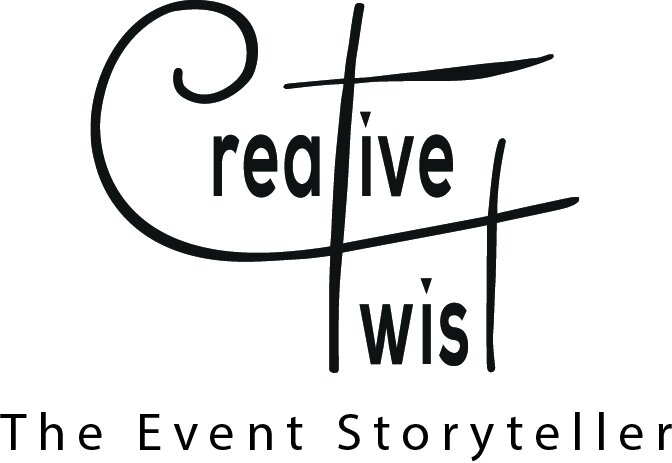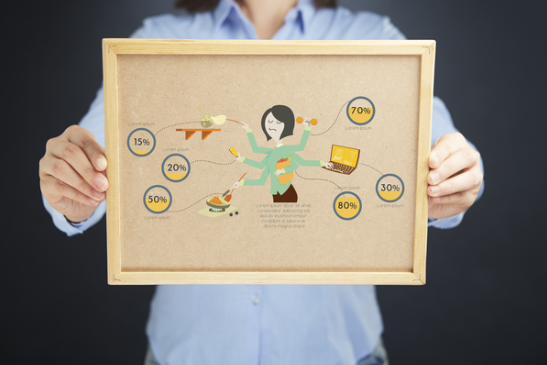The New Normal - Moving Beyond Survival Mode
/These are strange times. COVID-19 has created extreme conditions for people both personally and professionally. As we know, the impacts on businesses and workers have been devastating, and the events industry was one of the first to feel the brunt of this impact. Many of us are struggling to support ourselves and our families, and compounding that, are afraid for the health and safety of loved ones. There's an overwhelming feeling of a loss of control and security on an unprecedented scale.
In light of all this, it's been difficult to know what to post on social media and how to continue to enrich the industry. Businesses know the importance of marketing and active social media during this digital age, but what message do we want to send right now? Without live events to plan, what skills and expertise can we offer to our clients and the industry? I realized I have a unique blend of training and experience which allows me not only to relate to some of the complex feelings and situations event professionals are facing, but also to offer some tools to help work through the mental, emotional, and physical toll this is taking on many of us.
Before finding my way into the events industry full time, I was a social worker. For nearly 8 years I worked on an in-patient unit at a hospital with clients that had experienced significant upheaval in their lives. Many were at risk of losing, or had lost, their jobs, homes, family support, and had issues related to physical and/or mental health. Most had experienced some degree of isolation, and had difficulty with staying motivated and following through with goals. Sound familiar?? I think that many of us are feeling some level of loss or disruption that is impacting our lives. Solutions for these clients were not a one-size-fits-all and they didn't fix everything all at once. We had to work at it, and each individual plan had to be created in collaboration with the person who would be living it.
Right now many of us wish things could just be like they used to be, that we could get back to old routines and the same sense of normalcy. What I've observed from friends, loved ones, and even strangers online, is that many of us are listless and frustrated because the normalcy that we relied on no longer exists. There's a saying, “If you keep doing what you've always done, you'll keep getting what you've always got”. How many times have we tried to get clients to change things up and do something differently and they resisted change? Now the shoe is on the other foot and we are experiencing first hand that if “doing what you've always done” isn't possible and it’s causing distress, it’s a sign that it's time to change the approach.
As event professionals, one of our goals is to work with clients to discover the “why” of their event. It helps us to plan and bring to life a truly personalized and unique event that tells their story and honours their values. And when something throws a wrench in our meticulously laid plans, we pivot and adapt; we come up with creative solutions. It's not so different when creating a plan for ourselves. We have so much experience when it comes to this! Lately I've been asking myself: What are your needs and wants? What are your values? What has worked before, and what needs to change? What are your biggest obstacles?
Over the next several weeks I'm going to share some information and tools that have been helpful when working with people facing uncertainty, loss of security and lack of motivation. I've been revisiting these tools for myself lately, as I have often over the years, and perhaps they'll be helpful for you too.
Moving Beyond Survival Mode
The impact of COVID-19 has knocked the wind out of many of us and left us slogging through a survival period the past few months. That loss of control and security I mentioned earlier has really shifted many of us into a state of distress. I’d like to take my next several posts to look at working through the distress as part of our personal action plans. Going from just surviving to thriving and growing.
For many people the word “stress” typically brings up thoughts and feelings associated with experiences of discomfort and intense pressure. We in the events industry are no strangers to stress! We are pros at spending long event days putting out fires and herding cats, rolling with last minute changes and coming up with creative solutions, managing tight turnarounds on detailed RFPs, and pushing through skipped meals with a go bag full of energy drinks and snacks – we’ve done it all. And honestly, from the people I’ve met in the industry, most of us love it and some even thrive on it!
Types of Stress
So if stress is something we secretly love and even thrive on, why are there so many books and courses focused on ‘eliminating stress’ and ‘finding your zen’? Are we masochists? Not necessarily: there are different types of stress, and they’re not all bad for you. That stress that we thrive on is called Eustress. We’ve been biologically wired to use those acute stress signals to give us the adrenaline boost we need for either fight or flight. This is our “get stuff done” juice. Anyone else need that impending deadline to light a fire under your butt and get those creative juices flowing? I know that’s not just me! Lately, however, much of the world has been experiencing Distress due to COVID-19. This is the kind of stress we feel when we: first perceive a situation as dangerous, difficult or painful; and second don’t believe we have the resources to solve it or cope.
The long-term negative physical and psychological effects of distress have been well-studied and it’s clear there needs to be a way to manage this kind of stress in order to keep ourselves healthy and happy. If the factors that influence whether a stressor becomes distress or eustress lie in how much we personally view the situation as dangerous/difficult/painful, and whether or not we believe we have the ability, resources and support to work through it, then the way to manage it will have to be personal as well. A one-size-fits-all solution won’t work here. Moving from a state of distress to eustress - from survival to thriving - will take a bit of reflection, and our favourite thing, planning!
Removing “Should” from the Equation
When people are accustomed to using stress as a motivator, having a stressor become overwhelming, and in some cases debilitating, is frustrating and confusing. There can be feelings of failure and guilt when we’re not living up to our own expectations of being able to just handle it the way we’ve expertly handled stressful situations in the past. I mean, we do this for a living, right?! We often have higher expectations of ourselves than we do for others, and can be much less kind and forgiving about not delivering. I’ve struggled with these thoughts myself, especially lately.
So how do we get past these confidence-busting feelings and come up with our personal coping plans? By being gentle with ourselves and without judgement on performance taking stock of where we are. When a situation has become an area of distress, it ultimately doesn’t matter if we think we should be able to cope with it or not. Let’s remove “should” from the equation. If there’s a situation that’s distressing, give yourself the space and time to figure out what that is and then start to think about what you can do about it.
In my upcoming posts I’m going to share three steps to help you tackle (dis)stress.
Identifying the stressors
Changing the stressors
Changing your response to the stressors
Please check back, and in the meantime try to be good to yourself!
Ashley Groves, BSW (she/her)
Ashley is an Event Coordinator at Creative Twist Inc. Her unique blend of skills comes from over a decade in theatre production, management and design, and as a former social worker.


















